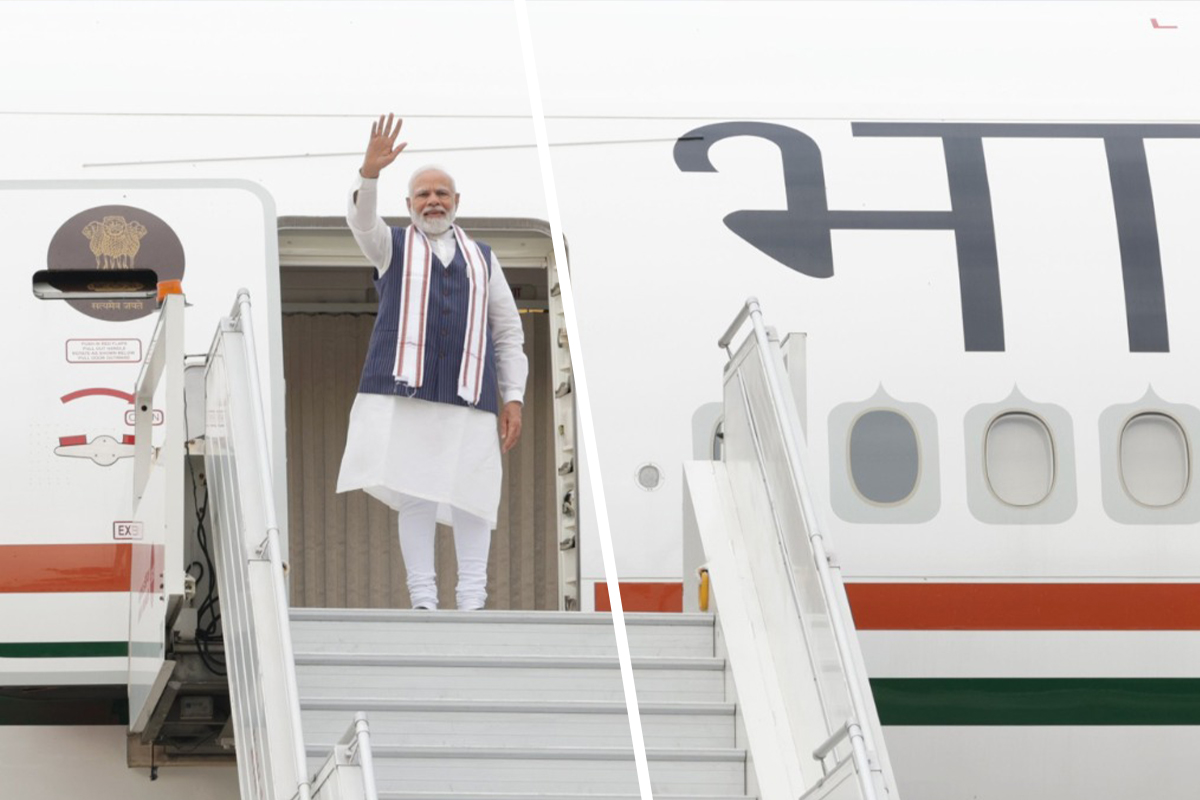With his trip the USA, PM Narendra Modi is not just going to be the only third state visitor of the Biden administration after French President Emanuel Macron (December 2022) and Yoon Suk Yeol (April 2023), but he will also be the first Indian leader to address the joint session of the US Congress for the second time.
This very fact tempts me to highlight a few points.
First in the line is the multi-billion dollar deal between GE (General Electric) and HAL (Hindustan Aeronautics Limited) for 80% jet engine technology transfer to India. This deal includes game-changing areas like advanced metallurgy, machine tech and engine repair technology.
The next in line is the iCET or the Initiative on Critical and Emerging Technology partnership. This visit will give a finishing touch to this partnership with the US. With an aim to improve respective innovation ecosystem, defence innovation and technology cooperation, consolidate on semiconductor supply chains, space and next generation telecommunications – this partnership involves institutions like IITs, and could prove to be a silent, under the radar, mega-catalyst both in terms of relations between institutions of the two nations, as well as in the coming of the conflict of chip technology.
ALSO READ: Poland’s actions against South Africans could strengthen China, BRICS
Now, let us focus on the barely visible geopolitical contour associated with this mega-event.
80% tech transfer – assuming all goes well – is going to be a major vexation for China. Jet engine technology is a monopoly as of now to the USA, UK, France, and Russia. China relies on Russia for its engine tech, so the frustration is understandable. iCET partnership, and the implications of the same along areas of semiconductor supply chain, quantum computing, Q-bit, chip writing tech, or proposed shifting of Foxconn and Micron manufacturing bases to India etc have the potential to throw India’s tech ascendance into the next orbit, and that could well be a game changer in this part of the world.
How would China respond to the threat? Well, it could respond by throwing a spanner to the deal, considering that there are already deep fissures within the USA. PM Modi’s tour, GE and HAL, iCET – are all essentially DOD (the US Department of Defense) initiative. But the sitting Democrat politicians in the State Department are not in the same boat. They do not share the same enthusiasm, or the conviction about India especially under PM Modi. This, because a chunk of them – many suspect – are hand in gloves with China. If that were a fact, then they would try everything possible to derail this.
It is okay to assume that this might mean the US President having to play the negotiator between the DoD and the State Department, but there is an issue here – that President Biden is a Democrat, not a strong one at that.
There could be significant pressure brought upon him by his own team members to let this lie and gather dust. The assumed manner in which it would be brought about by woke Democrats is by linking Modi with the rise of assertive Indic nationalism.
The DoD probably understands that any move by the State Department to derail the US pivot to Indo-Pacific – as it is now being called – might seriously affect their ambitions of opening up a new front. That could be the very reason why the different agencies tied directly or indirectly with the US institutions (the likes of Open Societies) are trying to prop a PM probable for the 2024 Indian elections – someone who is sufficiently woke and pliable, someone the Democrats cannot disapprove.
ALSO READ: The great game continues: Central Asia as the battleground
If this kind of a geopolitical frame is remotely real, that might mean that India remains deeply infiltrated by foreign agencies and that the efforts to cut their funding and other means of influence have had negligible impact. And there is no ground to expect that this approach among the US stakeholders will change if a Republican candidate like Trump, De Santis, or even Indian origin Vivek Ramaswamy wins the next year’s presidential race, to speak nothing about a new Democrat succeeding Biden.
This kind of a tech transfer also indicates the US is confident about the conversion of India into a pliable front against China. That undermines India’s multipolar aspirations. That also hypothesizes India as the next Ukraine.
What would the Modi-Jaishankar-Doval trio do to ensure that such nefarious US designs don’t succeed? How would they traverse this tricky terrain? Would they sacrifice Indo-Russian relations moving ahead? Even then, is there a guarantee that the US would not interfere in the 2024 elections?
Can they persuade the DoD and the White House that if there is a direct conflict with China, Russia is still the most effective ally for the US in countering China from the north, despite how unlikely it may seem at present? That India is the one true bridge between the West, and Putin/Lavrov/Patrushev? And that the leader(s) of choice of George Soros and regime changers is/are incapable of conserving and building on this uniqueness? It would be a miracle if the trio manages to pull this off.
(Arindam Mukherjee is a geopolitical analyst and the author of JourneyDog Tales, The Puppeteer, and A Matter of Greed.)
YOU MAY ALSO LIKE:










